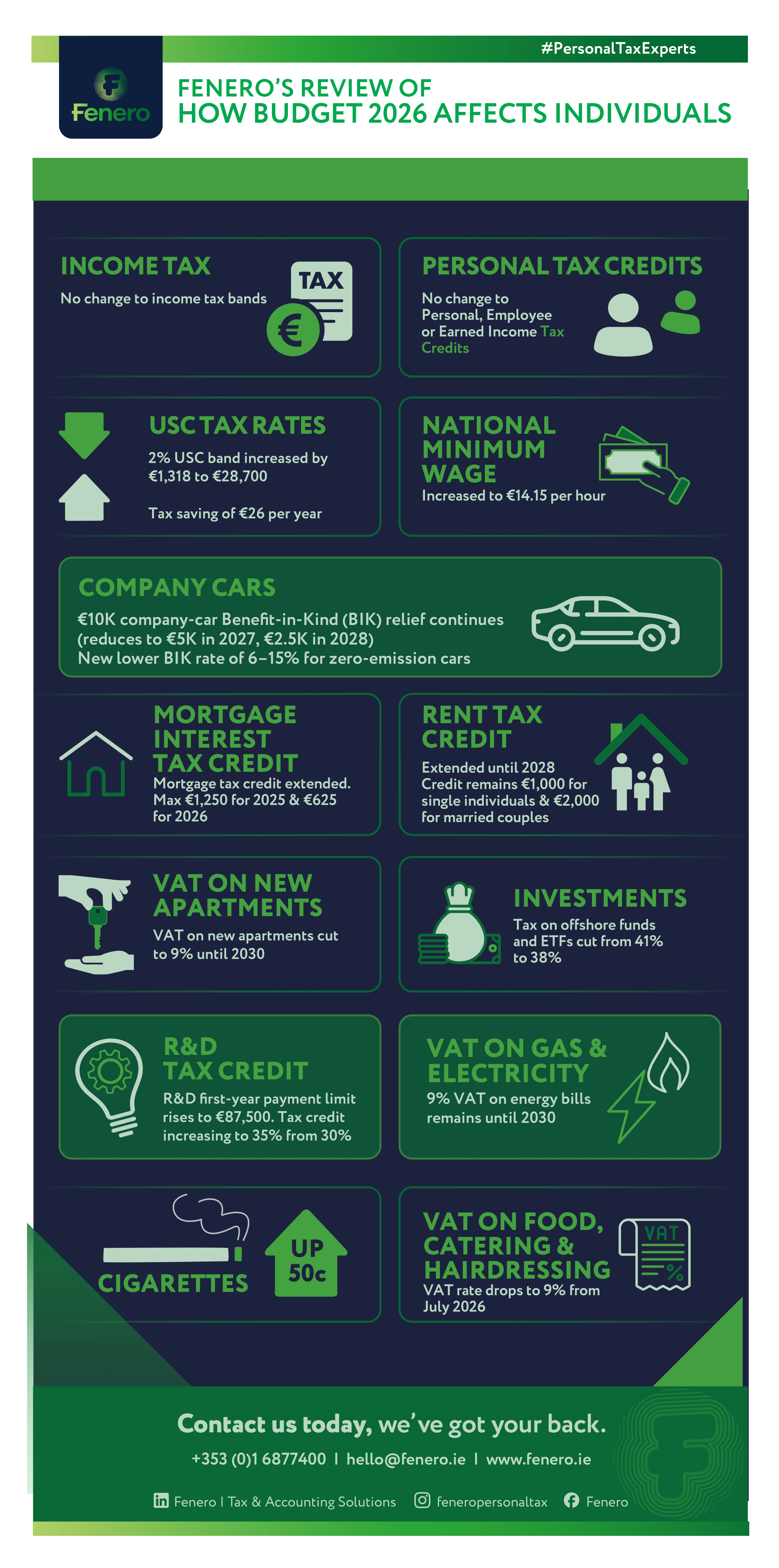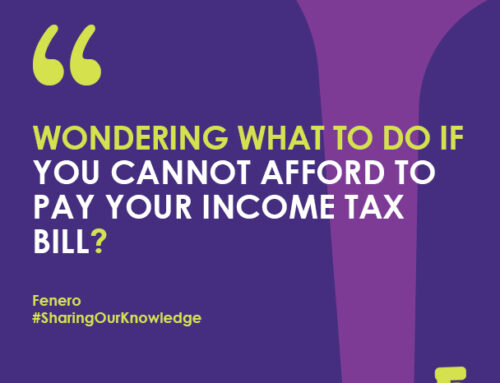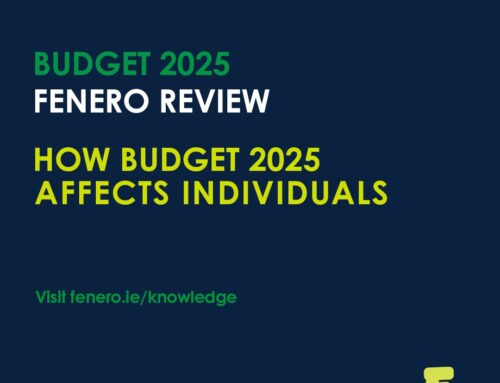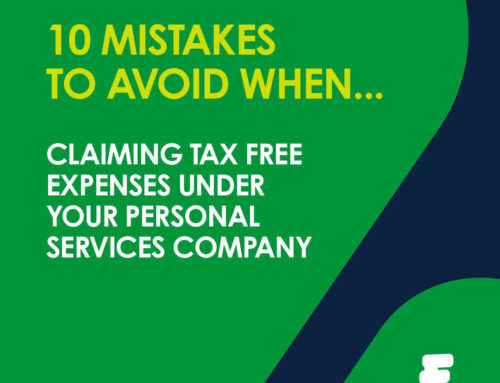Budget 2026 was delivered against a backdrop of global uncertainty and persistent inflation. With an overall package of €9.4 billion, the Government has opted for a steady, responsible approach rather than headline giveaways.
It focuses on higher capital investment, housing, and targeted public services. Gone are the once-off cost-of-living and energy credits of recent Budgets. Instead, measures this year are more modest and longer-term.
At a glance
Of the €9.4 billion package:
- €8.1 billion relates to additional public spending
- €1.3 billion relates to tax measures
Below we’ve summarised the key takeaways that may affect you.
Personal Tax
- No change to the 20 % income-tax rate band or personal tax credits.
- The 2 % USC band increases by €1,318 to €28,700, giving a saving of roughly €26 a year.
This ensures full-time workers on the minimum wage remain outside higher USC rates. - The national minimum wage rises by 65 cents, to €14.15 per hour from 1 January 2026.
While these are welcome, there’s no broad tax relief to offset inflation; so planning and efficient structuring remain key to improving your net position.
Investments
- The tax rate on Irish and equivalent offshore investment funds, including ETFs, reduces from 41 % to 38 %.
A small but positive change for savers and investors.
Rent Tax Credit
- Extended to 31 December 2028.
- Value remains €1,000 for individuals and €2,000 for jointly assessed couples.
- Parents paying rent for student children can continue to claim this credit.
Mortgage Interest Relief
- Extended for 2025 and 2026.
- Capped at €1,250 for 2025 and €625 for 2026.
- Applies to qualifying homeowners with a mortgage balance between €80,000 – €500,000 on 31 December 2022.
Energy Costs
- No new energy credits, but the 9 % VAT rate on gas and electricity is extended to 31 December 2030.
Apartments and Regeneration
- VAT on new apartments reduced from 13.5 % to 9 % from 8 October 2025 to 31 December 2030 to boost supply.
- The Living City Initiative is extended to 2030, now including Athlone, Dundalk, Drogheda, Letterkenny and Sligo, and covering residential properties built before 1975.
Landlords and Property Owners
- The retrofitting deduction is extended to 31 December 2028.
Relief can now be claimed in the year the expenditure occurs, and for up to three properties (previously two). - Landowners under the Residential Zoned Land Tax have another opportunity in 2026 to apply for rezoning exemptions.
Entrepreneurs and Investors
- R&D Tax Credit rate rises from 30 % to 35 %, with the first-year payment threshold increased to €87,500 to support cashflow for smaller firms.
- Entrepreneur Relief: lifetime CGT limit increases from €1 million to €1.5 million for disposals from 1 January 2026 – potentially worth up to €165,000 in tax savings for qualifying business owners.
Indirect Taxes
- From 1 July 2026, VAT for food, catering and hairdressing drops from 13.5 % to 9 %.
- Tobacco: excise duty on a pack of 20 cigarettes increases by 50 c (with pro-rata increases on other tobacco products).
Climate and Vehicles
- Carbon Tax rises from €63.50 to €71 per tonne from 8 October 2025 for auto fuels and 1 May 2026 for all others.
- VRT relief for electric vehicles extended to 31 December 2026.
- Benefit-in-Kind (BIK) relief on company cars and vans continues but tapers:
- €10,000 in 2026
- €5,000 in 2027
- €2,500 in 2028
A new zero-emission BIK category (6 – 15 %) will apply based on business mileage. This is good news for anyone considering purchasing an electric vehicle through their company.
- Accelerated Capital Allowances for energy-efficient equipment extended to 2030.
- The €400 Income Tax exemption for household micro-generation of electricity extended to 31 December 2028.
The Bottom Line
Budget 2026 keeps Ireland’s finances steady but offers little relief for day-to-day cost pressures. For most individuals and contractors, the gains are modest, and the real difference will come from smart planning rather than new policy.
Stay informed – we’re here to help
At Fenero, we make sense of how each Budget affects you and your finances.
If you’d like personal advice or help maximising your take-home income in 2026, email us at hello@fenero.ie or call +35316877400.
We look forward to helping you stay compliant, confident, and planning to be better off.







